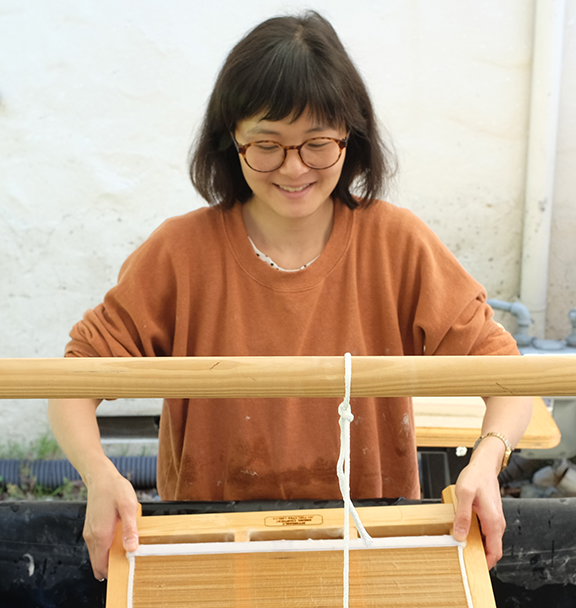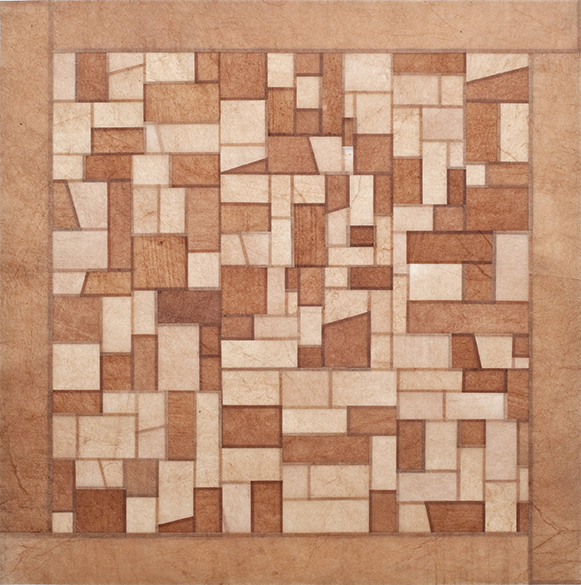Paper Is People BIPOC Workshop Scholarships
In celebration of the exhibition Paper is People: Decolonizing Global Paper Cultures at SFCB, we are pleased to offer two workshops for BIPOC-identifying (Black, Indigenous, and People of Color) students. This workshop programming is supported by a grant from the Zellerbach Family Foundation. The application is closed and all scholarships have been awarded.
Exploring Materiality, Meaning and Memory: Natural Dyes in Papermaking with Trina Michelle Robinson
Sunday, December 10th :: 10 am - 5 pm
Create unique and personal sheets of paper using recycled paper and natural dyes. Whether your goal is to convey a deeper meaning through the materials you choose or you simply want to create a specific look, there are many opportunities to explore meaning in your handmade paper. The choice of material can be metaphorical or more direct, such as using coffee to give the paper more of a historic look and feel.
In class the instructor will detail the process of dying and making paper, provide guided instruction and provide for different types of plants and flowers that can be used for dying, including coffee, tea, hibiscus flowers, marigold flowers, and spirulina. Pre-soaked high quality recycled paper for the paper pulp will also be provided but students can also bring in their own paper, including paper from notebooks and journals, especially if that paper has a special meaning. There will also be finished dyed paper examples in class for the students to look at.
Students are welcome to bring the following optional materials to class:
-
Students can bring in their own paper, including paper from notebooks and journals, especially if that paper has a special meaning.
-
Dried flowers or plants (the instructor will review in class to see if they will work)

.jpg)
Saturday, December 16th :: 10 am - 4 pm
In this class we will learn how to piece together paper scraps to create a patchwork of art. We will base our method and design on traditional Korean wrapping cloths called "bojagi." Patchwork bojagi is a traditional type of Korean textile art using discarded cloth scraps.
In this one-day class, students will learn how to prepare paste for adhering paper scraps together, how to use an iron to quickly adhere and dry pieces together, along with how to finish their artwork with a traditional border. Hanji (Korean handmade paper) scraps will be provided for students to make at least one finished bojagi. Students are welcome to bring their own paper scraps for experimentation, and will also have the option of purchasing additional hanji for future projects.
Students are responsible for bringing the following tools/materials to class:
Required:
-
Clothes iron or tacking iron
-
Small brush like this
-
-
Tweezers
Optional:
-
assorted thin paper scraps for experimentation (Asian papers preferred)
-
sharp scissors
-
teflon folder
-
small glue stick
-
small plastic container with lid (to take home leftover wheat paste)




.jpg)

